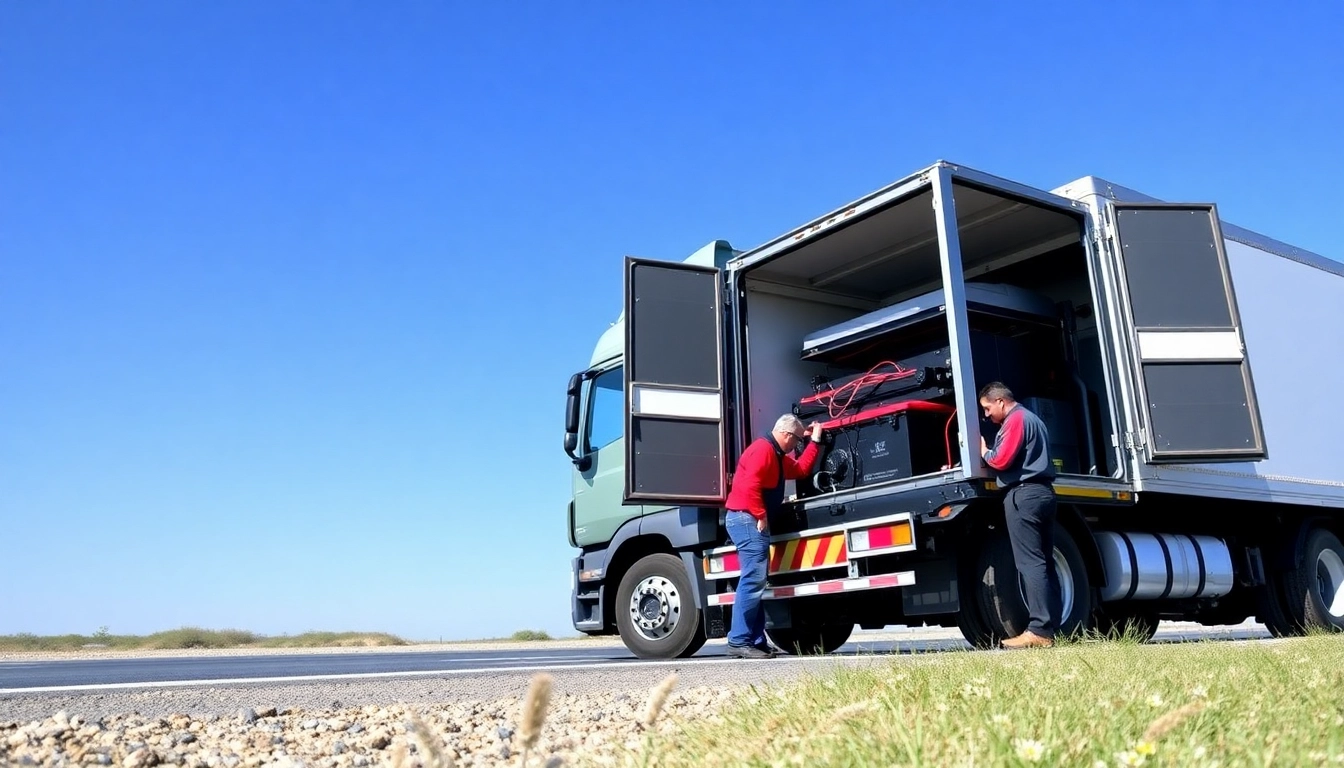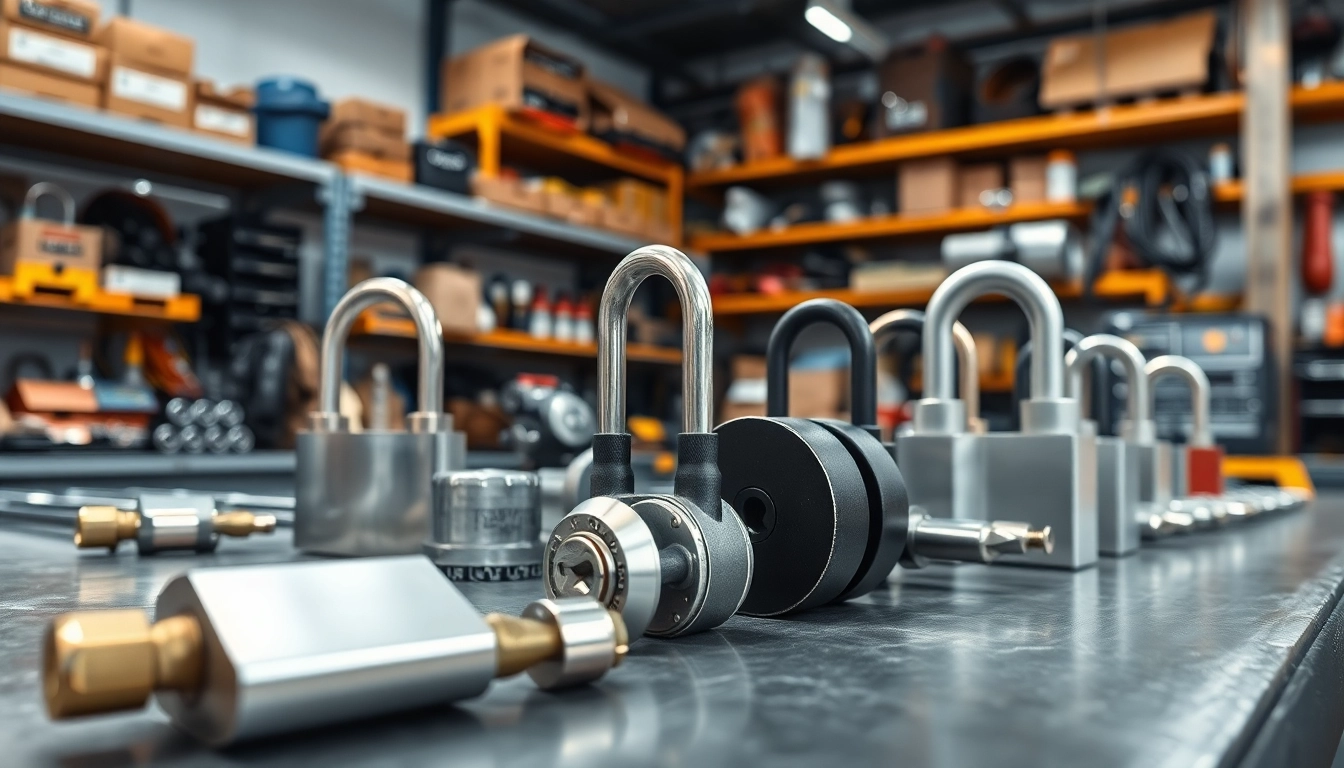Understanding Heavy Truck Batteries
Heavy truck batteries are the critical components that provide the necessary power for various functions, from starting the engine to powering the electrical systems. As the backbone of heavy-duty vehicles, understanding their types, features, and maintenance is essential for every truck operator, especially when considering battery replacement for heavy trucks on the road.
Types of Batteries Used in Heavy Trucks
Heavy trucks typically utilize specific battery types to meet their demanding operational requirements. The most common types are:
- Lead-acid Batteries: These are traditional batteries that provide reliable starting power. Available in flooded, AGM (Absorbent Glass Mat), and Gel versions, lead-acid batteries are cost-effective and widely used due to their availability and performance.
- Lithium-ion Batteries: An emerging trend in heavy truck batteries, lithium-ion options offer lighter weight and faster charging times. They provide higher energy density and are ideal for vehicles that require auxiliary power.
- Gel Batteries: While slightly more expensive, gel batteries offer better resistance to vibrations and extreme temperatures. Their sealed design minimizes maintenance, making them ideal for less frequent checking.
Key Features of Reliable Heavy Truck Batteries
When selecting a battery for heavy trucks, certain features signify reliability and endurance:
- Cold Cranking Amps (CCA): This rating indicates the battery’s ability to start an engine in cold temperatures, which is crucial for heavy-duty trucks operating in various climates.
- Reserve Capacity (RC): This feature measures how long the battery can power the truck’s electrical systems without the engine running. A higher reserve capacity is vital for long hauls.
- Warranty: A robust warranty not only signifies quality but also ensures peace of mind. Most reputable brands offer warranties of 18 months or more.
Battery Lifecycle and Maintenance Tips
The average lifespan of a heavy truck battery ranges between three to seven years, depending on usage and maintenance. To maximize battery life:
- Conduct regular visual inspections for corrosion or leaks.
- Ensure terminal connections are clean and tight.
- Check electrolyte levels in flooded batteries and top off with distilled water as necessary.
- Utilize a multimeter to monitor battery voltage regularly.
When to Replace Your Heavy Truck Battery
Knowing when to replace a heavy truck battery can prevent unforeseen breakdowns and costly repairs.
Signs Your Truck Needs a New Battery
Several signs indicate that a battery replacement may be necessary:
- Slow Engine Crank: If the engine cranks slower than usual, it may signal a failing battery.
- Dashboard Warning Lights: A glowing battery warning light is a clear sign that it requires attention.
- Corroded Connectors: Significant corrosion around battery terminals can impact performance.
Assessing Battery Performance Over Time
It’s essential to track battery performance metrics over its lifecycle. Regular checks on CCA and RC can provide insights into battery health.
Common Misconceptions About Battery Lifespan
Many drivers mistakenly assume that a battery will only last until it shows visible signs of failure. In reality, premature battery failures may occur due to factors like:
- Overcharging or undercharging.
- Poor-quality components or installation.
- Environmental factors, such as extreme temperatures.
Choosing the Right Battery for Heavy Trucks
Selecting the right battery is critical for longevity and performance. Here’s how to make an informed decision.
Evaluating Brand Reputation and Warranty
Researching brands before a purchase can help identify which products are best suited for specific heavy-duty applications. Well-known brands often offer comprehensive warranties that reflect product reliability. Look for brands with strong customer reviews and established reputations in the commercial vehicle market.
Cost Considerations for Battery Replacement
While cost shouldn’t be the sole factor in selecting a battery, budget plays a role. Premium batteries may have a higher upfront cost but could save money over time due to longer lifespans and better performance. Consider the following:
- Initial Purchase Price: Evaluate the price of batteries from differentiated brands and models.
- Cost-per-Use: Analyze how much life you can expect to get from the battery concerning its price.
Understanding Performance Specifications
Each battery comes with a set of performance specifications that can help determine compatibility with your truck’s needs. Refer to these key specs when evaluating options:
- Voltage rating (generally 12V for heavy trucks).
- Capacity ratings, like amp-hours (Ah).
- Size and fit specifications to ensure compatibility with your vehicle’s battery compartment.
Installation Process for Heavy Truck Batteries
Proper installation ensures that the battery operates efficiently and safely. Follow these steps for effective replacement.
Step-by-Step Guide to Battery Replacement
- To begin, ensure that the vehicle is off and parked in a secure location with the parking brake engaged.
- Disconnect the negative terminal first, then the positive terminal to prevent electrical shorts.
- Remove any brackets or fasteners holding the old battery in place.
- Carefully lift the old battery out and place the new one in the compartment.
- Reconnect the positive terminal first, followed by the negative terminal.
- Finally, secure any brackets or fasteners you removed and verify that everything is connected correctly.
Safety Precautions to Take During Installation
Prioritizing safety is crucial during the replacement process. Here are some precautions to consider:
- Wear gloves and safety goggles to protect against acid spills or short circuits.
- Ensure proper ventilation to avoid inhaling gas emitted from the battery.
- Avoid using metal tools near battery terminals to mitigate the risk of sparks.
Aftercare Tips for New Battery Installations
Once the new battery is installed, follow these aftercare practices:
- Check all connections again for tightness.
- Monitor the battery’s voltage regularly over the first few weeks to ensure it is operating correctly.
- Schedule periodic maintenance checks to prolong battery life.
Long-Term Maintenance Strategies for Heavy Truck Batteries
Preventive maintenance plays a vital role in extending the lifespan and efficiency of heavy truck batteries.
Regular Maintenance Checks to Prevent Failures
Establishing a routine maintenance schedule can help catch issues early:
- Conduct visual inspections monthly to check for corrosion at terminals.
- Test battery health and performance with a multimeter bi-annually.
- Maintain cleanliness around the battery area to avoid dirt buildup.
Extending the Life of Your Truck Battery
Implementing strategies to maximize your truck battery’s lifespan includes:
- Keeping it charged, especially during downtime or longer periods without use.
- Utilizing battery maintainers to prevent over-discharge.
- Avoiding frequent short trips, which can prevent the battery from reaching a full charge.
Innovative Battery Technologies on the Horizon
The battery technology landscape is evolving rapidly, with innovations set to improve performance and sustainability in heavy-duty trucks:
- Solid-State Batteries: These represent the next generation of batteries, offering higher energy density, increased safety, and longer lifespans.
- Reusable and Recyclable Batteries: Newer batteries are being developed with eco-friendly materials that make recycling feasible, reducing environmental impacts.
- Battery Swapping Solutions: There are increasing discussions on adopting battery swapping technologies in commercial trucking to minimize downtime during battery changes.
By understanding the intricacies of heavy truck batteries—from their types and maintenance to replacement signs and installation—truck operators can ensure reliable operation on the road. Proactive care and adopting new technologies will greatly influence the longevity and efficiency of these crucial components.



